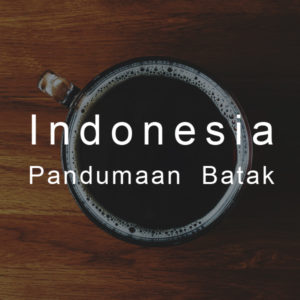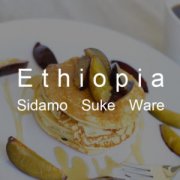Introduction of semi-washing treatment method Giling Basah in Pangduoman Village, Lindong Lintong, Indonesia

For professional baristas, please follow the coffee workshop (Wechat official account cafe_style)
Indonesia introduced Arabica coffee and began to grow it during the Dutch colonial period in the 18th century, until it became the top coffee producer in the world in modern times, mainly in Sumatra, Java and Sulawesi.
The beans are named after the Batak people who grow coffee beans on the banks of Lake Toba in northern Sumatra and are crowned with Blue because of the blue-green appearance of the raw beans. Lake Toba is the hinterland of the world's largest volcanic lake. Buue Batak is mainly supplied by about 3500 small farmers around the Lindong producing area, producing about 300kg of coffee beans per person per year. This area is about 1550 to 1650 meters above sea level, the terrain is gentle, most of the planting environment is shaded, and the soil is fertile. Coffee production in this area is carried out by hand, from weeding and fertilization, picking ripe coffee cherries to peeling. The wet pods are fermented for 10-12 hours, and then the pectin and floating matter are removed manually before being washed and dried. This unique semi-washing method in Indonesia is called Giling Basah by local people, which is the traditional wet stripping method (wet-hulled) of the local Bhatta Croat.
After semi-washing treatment, farmers will sell them directly in the local market or send them to nearby concentration stations, and the raw beans with shells bought by the purchasers will be exposed again according to the situation, until it is confirmed that the water content is reduced to 12-13%. It is selected by hand according to size and weight and ready for export.
Sumatra (Sumatra) is the largest island in Indonesia and currently the largest producer of robusta beans in Indonesia, accounting for 75 per cent of the country's production. The best coffee in Sumatra comes from two places, including Manning Coffee in Lintong, the most famous coffee in the area near Lake Toba on the island of North Sumatra. Lake Toba is the largest volcanic lake in the world. the whole lake is beautiful blue, also known as Blue Lake, and the main ethnic group growing coffee around Lake dopa is the Batak, hence the name.
Origin: Indonesia
Production area: Sumatra-Lindong Sumatra Lintong
Altitude: 1200-1500 m
Treatment method: traditional wet dialing treatment
Baking degree: medium to deep
Flavor description: basil, bay leaf, herb aroma and texture, citrus, plum fruit, grapefruit, cocoa, caramel
Important Notice :
前街咖啡 FrontStreet Coffee has moved to new addredd:
FrontStreet Coffee Address: 315,Donghua East Road,GuangZhou
Tel:020 38364473
- Prev

Introduction of Ethiopian Water washing Sidamo G1 Sukowell Ethiopia Sidamo Suke Ware
For the exchange of professional baristas, please follow the coffee workshop (Wechat official account cafe_style) there are eight major producing areas of Ethiopian coffee: Ekempti, Limu, Illubabor, Djimma, Harrar, Teppi/Bebeka, Sidamo, Yirgacheffe. Ethiopian coffee is highly rated in Taiwan, especially for Ethiopian Harrar and Xida.
- Next

La Pira of Tara Jubila Manor in Costa Rica introduces the organic certified coffee production estate.
For professional baristas, follow the Coffee Workshop (Wechat official account cafe_style), the 50-year-old Pilla estate named after Carlos Carlos's father Gilberto Urena's nickname PIRO. After inheriting the family farm, Carlos operates as an organic certified coffee farm, but in recent years Carlos has chosen another type of manor to take care of it because of its high cost.
Related
- Detailed explanation of Jadeite planting Land in Panamanian Jadeite Manor introduction to the grading system of Jadeite competitive bidding, Red bid, Green bid and Rose Summer
- Story of Coffee planting in Brenka region of Costa Rica Stonehenge Manor anaerobic heavy honey treatment of flavor mouth
- What's on the barrel of Blue Mountain Coffee beans?
- Can American coffee also pull flowers? How to use hot American style to pull out a good-looking pattern?
- Can you make a cold extract with coffee beans? What is the right proportion for cold-extracted coffee formula?
- Indonesian PWN Gold Mandrine Coffee Origin Features Flavor How to Chong? Mandolin coffee is American.
- A brief introduction to the flavor characteristics of Brazilian yellow bourbon coffee beans
- What is the effect of different water quality on the flavor of cold-extracted coffee? What kind of water is best for brewing coffee?
- Why do you think of Rose Summer whenever you mention Panamanian coffee?
- Introduction to the characteristics of authentic blue mountain coffee bean producing areas? What is the CIB Coffee Authority in Jamaica?

